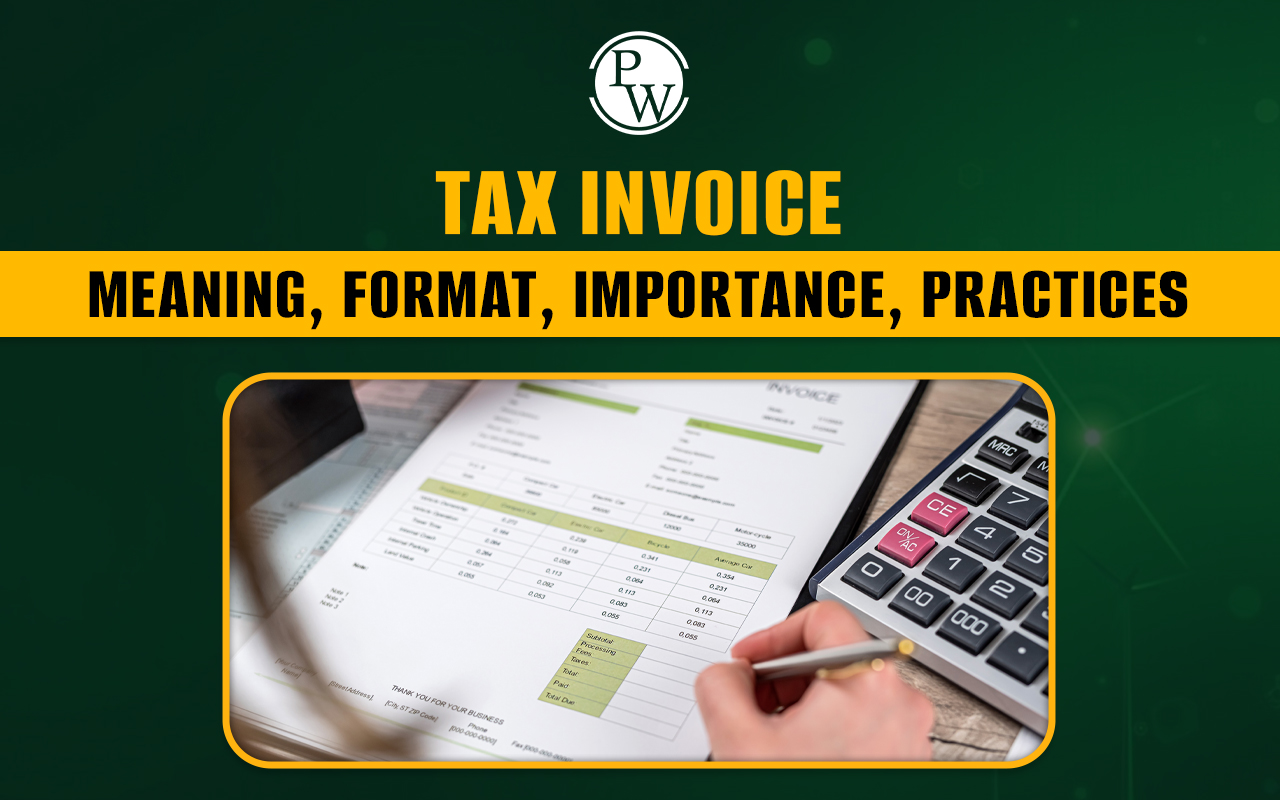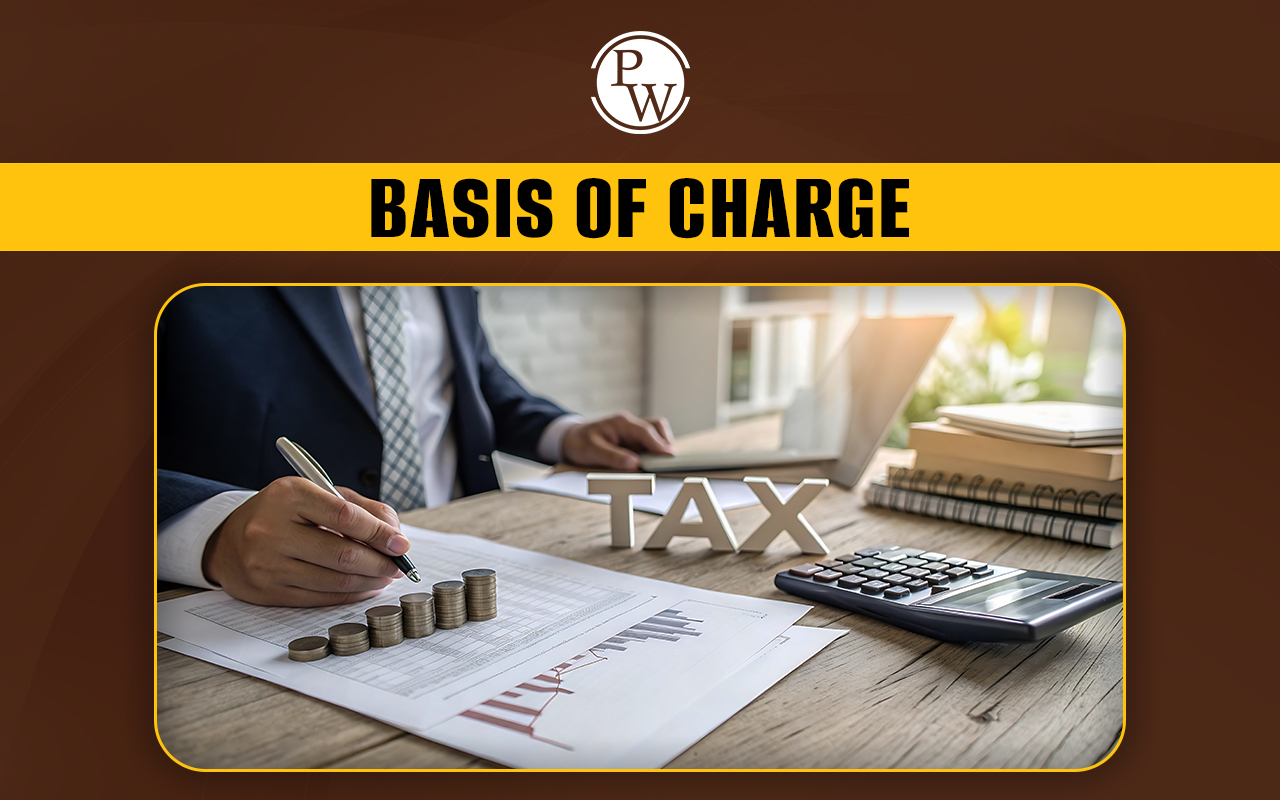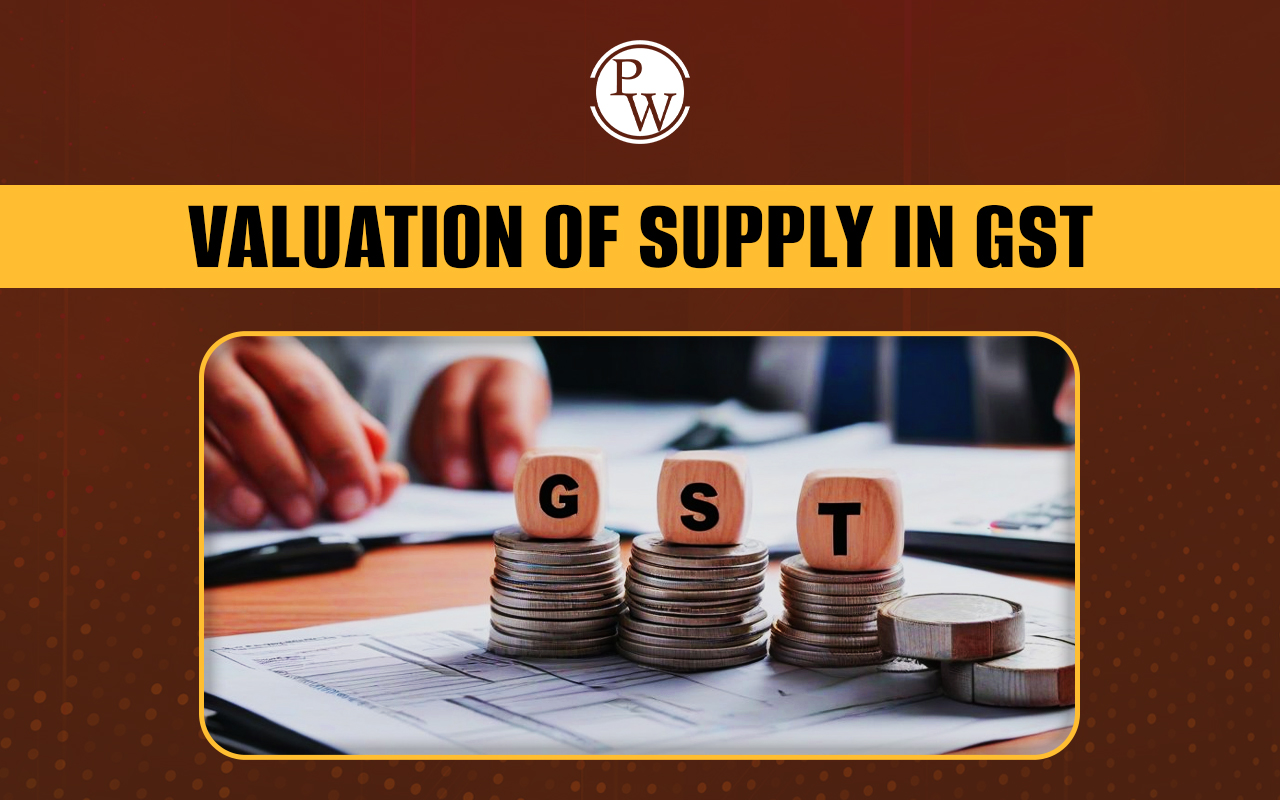

Tax Invoice: Under Section 31 of the CGST Act, all registered suppliers must provide a tax invoice for every supply of goods or services. In cases where the supplier is unregistered, the buyer is responsible for issuing both a payment voucher and a tax invoice. You can read more about this for CA exams here.
What Is Tax Invoice?
A tax invoice is an important document issued by a seller to a buyer, detailing the sale of goods or services and the payment amount, including any applicable taxes. It acts as proof of the transaction and is essential for tax reporting and compliance. Tax invoices are usually required for business-to-business (B2B) transactions and, in some areas, for business-to-consumer (B2C) transactions exceeding a certain amount.Contents and Format of a Tax Invoice
A tax invoice is a vital document in business transactions, acting as proof of sale and ensuring tax compliance. While the specific format and contents may vary based on location and transaction type, certain key elements are typically included:Seller's Details : The name, address, and contact details of the seller should be included for identification and communication purposes.
Buyer's Details : The buyer's name, address, and contact details should also be listed to ensure proper identification and delivery of goods or services.
Invoice Number : Each invoice must have a unique number for tracking and referencing in future communications.
Invoice Date : The date the invoice is issued should be clearly stated to determine payment due dates and assist with accounting.
Description of Goods or Services : A detailed description of the goods or services provided should be included to specify what the invoice covers.
Quantity and Price : The quantity of each item or service and the price per unit must be listed to facilitate the total calculation.
Total Amount Due : The invoice should clearly state the total amount due, including applicable taxes.
Taxes : Any relevant taxes, such as GST, VAT, or sales tax, should be specified along with the tax amount calculated based on the applicable rate.
Payment Terms : The invoice should mention the due date for payment, as well as any discounts or penalties for late payments.
Additional Information : Any extra details, such as terms and conditions of sale or delivery, should be included if necessary.
Also Read: Valuation of Supply in GST
How to Prepare a Tax Invoice?
Preparing a tax invoice is essential for ensuring tax compliance and documenting a sale accurately. Follow these steps to create a proper tax invoice:1. Gather Required Information
Before preparing the invoice, collect all the necessary details. First, include your business information, such as the business name, address, and Goods and Services Tax Identification Number (GSTIN), if applicable. Then, gather your customer’s name, billing address, and GSTIN (if applicable). Lastly, make sure you have a clear description of the products or services sold, including the quantity, unit price, and any discounts.2. Format the Invoice
For the invoice format, start by placing your business details at the top of the document. Below that, include the buyer’s details. Next, add a unique invoice number and the issue date. Clearly list the description of the goods or services sold, along with their quantity, price, and total amount due. Finally, specify the taxes applicable and include any additional details such as payment terms or delivery conditions.3. Calculate Taxes
To calculate the taxes, first, determine the tax rate applicable to the sale. Multiply the rate by the total amount of the sale to calculate the tax amount. Add the tax amount to the total amount due, resulting in the final payable amount by the customer.4. Review and Finalize
Once you have formatted the invoice and calculated the taxes, review the document to ensure all required information is accurate and complete. Make any necessary corrections or additions before finalizing the invoice.5. Issue the Invoice
After finalizing the invoice, provide it to the buyer, either in a physical or electronic format based on the buyer’s preference. Additionally, make sure to retain a copy of the invoice for your business records.Importance of Tax Invoices
Tax invoices play a crucial role for both businesses and tax authorities. Below are some key reasons why tax invoices are essential:Proof of Transaction
It serve as official proof of a transaction between the seller and the buyer. They detail the goods sold or services provided, the amount due, and the applicable taxes, ensuring transparency and clarity in the transaction.Tax Compliance
Tax invoices are vital for ensuring tax compliance. They help businesses accurately calculate and report the taxes payable to the authorities, preventing errors and potential tax-related issues.Input Tax Credit
For businesses, tax invoices are necessary for claiming input tax credit. This allows businesses to reduce their overall tax liability by offsetting the tax paid on purchases against the tax collected on sales.Legal Requirement
In many jurisdictions, issuing tax invoices is a legal obligation for certain transactions. Failing to provide tax invoices can result in penalties and fines, making it essential for businesses to comply with tax laws.Record Keeping
Tax invoices help businesses maintain accurate records of sales and purchases, which are crucial for accounting purposes and preparing financial statements. Proper record-keeping ensures smooth business operations and financial planning.Dispute Resolution
In case of any disputes between the seller and the buyer, tax invoices act as proof of the transaction, aiding in resolving conflicts and clarifying any misunderstandings.Audit Trail
Tax invoices create a reliable audit trail that tax authorities can use to verify the accuracy of tax returns filed by businesses, ensuring compliance and transparency in business transactions.Who Issues a Tax Invoice?
A tax invoice is generally issued by the seller to the buyer when goods or services are sold. The seller is responsible for ensuring the invoice complies with all tax laws and regulations. In certain situations, such as self-billing arrangements, the buyer may create the invoice on behalf of the seller. However, the seller typically issues the tax invoice in most cases.Practices for Issuing Tax Invoices
Properly issuing tax invoices is essential for businesses to stay compliant with tax regulations and maintain accurate financial records. Here are some key practices for issuing tax invoices:Include Required Information : Ensure that the invoice includes all necessary details, such as the names and addresses of the seller and buyer, invoice number, date, description of goods or services, quantities, prices, taxes, and the total amount due, as required by local tax laws.
Use a Standard Format : Adopt a clear, standard format for your invoices. This will help avoid confusion and ensure that all required details are easily accessible.
Number Invoices Sequentially : Assign a unique, sequential number to each invoice. This practice makes it easier to track invoices and maintain accurate records.
Issue Invoices Promptly : Issue invoices as soon as possible after the sale, ideally at the time of the transaction. Timely invoicing ensures accurate documentation and helps prevent payment delays.
Keep Copies : Retain copies of all issued invoices for your records. This is important for accounting purposes and serves as proof during audits or disputes.
Check for Accuracy : Always review your invoices before issuing them. Verify the information, calculations, and spelling to avoid errors that could lead to confusion.
Ensure Legal Compliance : Make sure your invoices meet all local tax laws, including any requirements for digital invoicing or electronic signatures.
Provide Copies to Customers : Share copies of invoices with your customers as proof of the transaction. This enhances trust and transparency in your business dealings.
Enroll in PW CA Courses for expert guidance, structured learning, and proven strategies to help you succeed. Start your journey towards success today!| Also Check: | |
| Place of Supply in GST | Time of Supply in GST |
| Computation of GST liability | Residential Status Under Income Tax Act |
| GST Composition Scheme | CGST |
Tax Invoice FAQs
Who is responsible for issuing a tax invoice?
What information should be included in a tax invoice?
How do I calculate taxes on a tax invoice?
Why are tax invoices important for businesses?












